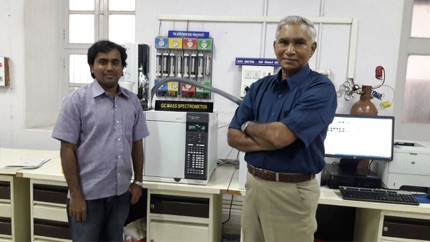A Heart Patient With Diabetes? Here’s Why You Should Eat Fenugreek With Onions!
The mice were either given their normal diet or normal diet supplemented with fenugreek or onion, in combination or alone. And the results are quite intriguing.

The role of fenugreek and onion in preventing cardio-vascular diseases has been a part of traditional knowledge in India. Now scientists from CSIR-Central Food Technological Research Institute, Mysore have found out the mechanism by which fenugreek and onion protect heart-related disorders in diabetic patients.
Lifestyle disorders such as diabetes, hypertension and obesity are on the rise globally. Diabetes or hyperglycemia occurs when the body is unable to utilize sugar in the blood due to insufficient amounts of hormone, insulin. Heart-related disorders are a leading cause of death among diabetics.
In order to understand the mechanism of action of fenugreek and onion, scientists first induced diabetic condition in mice. The animals were either given their normal diet or normal diet supplemented with fenugreek or onion, in combination or alone.
By examining cardiac tissues, scientists reaffirmed that the cardiovascular health of mice fed with fenugreek and onion was better.

Earlier it was known that more production of an enzyme (angiotensin-converting enzyme or ACE) and receptor (AT1 of renin-angiotensin system) in cardiac tissues of diabetic patients is a cause of heart-related disorders.
Scientists have shown that the both the enzyme and receptor are produced less in mice supplemented with fenugreek and onion and therefore the entire successive biochemical pathway initiated by these two is attenuated.
Although fenugreek and onion individually were able to ameliorate heart-related disorders in diabetic rats, it was found that they worked better in combination. The research results have been published in journal Cardiovascular toxicology.
“The fibre-rich fenugreek seeds and sulfur compound-rich onion are now understood to possess significant sugar-lowering as well as lipid-lowering action. They also possess antioxidant potential which is likely to have far reaching implication in alleviating secondary complications associated with diabetes,” explained Dr. Krishnapura Srinivasan, who led the study, while talking to India Science Wire. The study was jointly done by him and Krishnapura Srinivasan.

Article Courtesy by India Science Wire
Hey, you may also like: 14 Super Healthy Traditional Indian Foods You Probably Didn’t Know About
Like this story? Or have something to share?
Write to us: [email protected]
Connect with us on Facebook and Twitter.
NEW: Click here to get positive news on WhatsApp!
This story made me
-
97
-
121
-
89
-
167
Tell Us More
We bring stories straight from the heart of India, to inspire millions and create a wave of impact. Our positive movement is growing bigger everyday, and we would love for you to join it.
Please contribute whatever you can, every little penny helps our team in bringing you more stories that support dreams and spread hope.


















